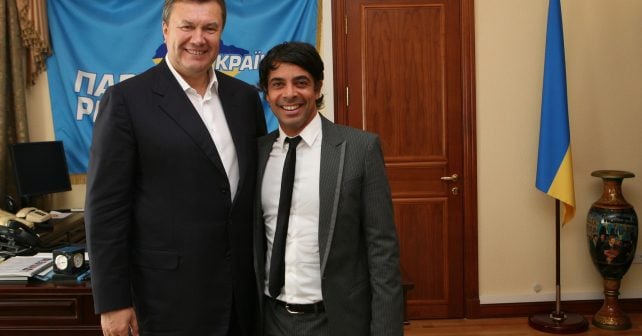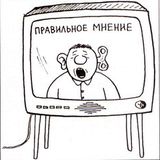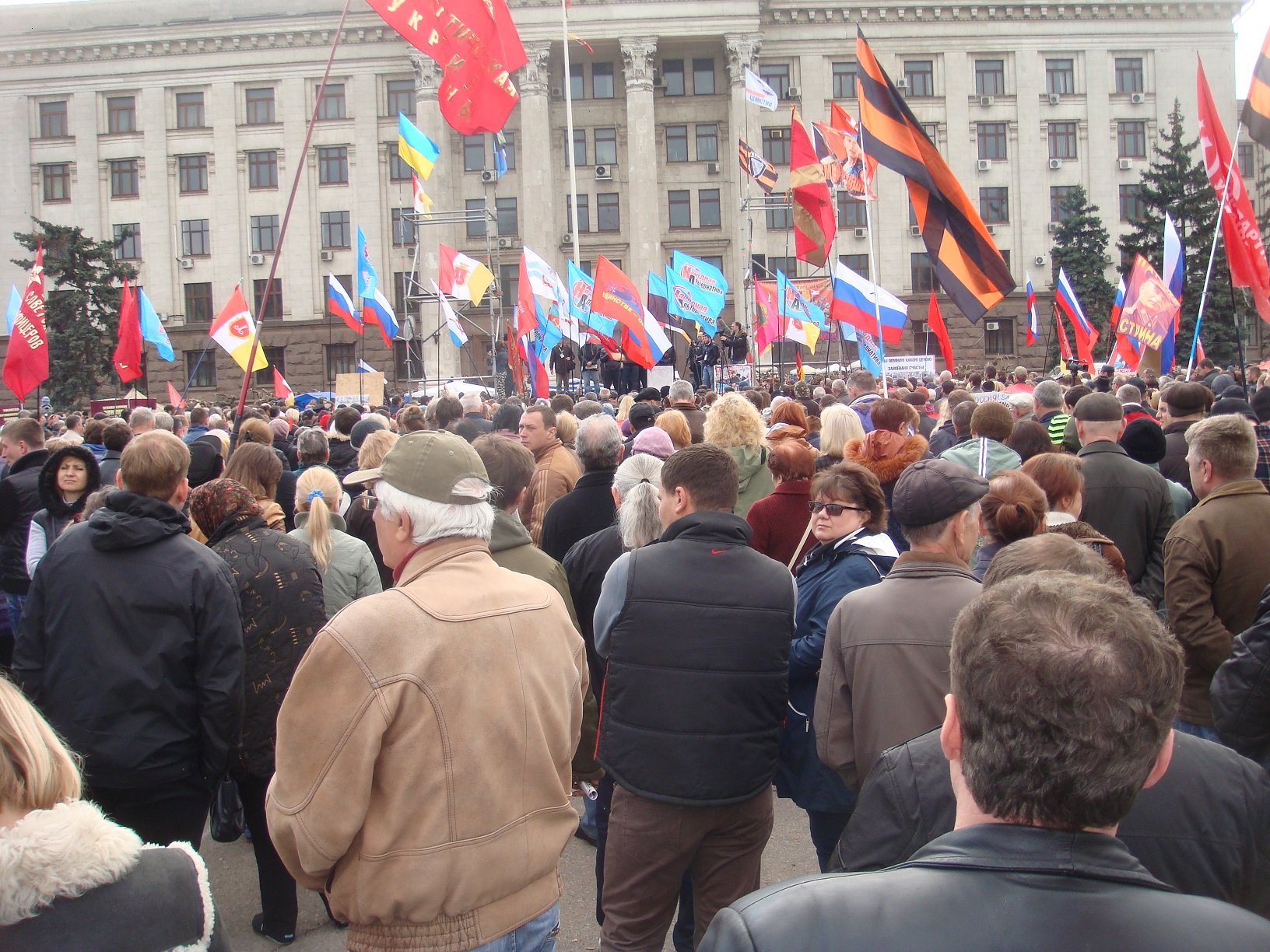
By Alex Bosk, InformNapalm
Over the last 10-15 years the Putin regime has been infiltrating the European Union and slowly expanding its influence on the continent. This has been noticed by several European media outlets. However, Moscow is not just investing in its media propaganda machine, with its centerpiece being Russia Today TV channel, which has now been launched in French just months before a crucial presidential election in the country. Russia is also granting support and sometimes funding to a range of far right, Eurosceptic and far left parties. Surprisingly, their leaders, politicians from different countries, in their speeches repeat Putin’s talking points and phrases taken out from Kremlin propaganda discourse. We’ve had a quick look at some strange stories done by Euronews, the European multilingual news TV channel, where Russia (VGTRK) is one of the shareholders. Sometimes, its stories are not much different from the coverage offered by Russian Channel One and Zvezda TV.
Many viewers have been shocked by a recent Euronews story on the funeral of Givi, the commander of a Russian-controlled illegal armed group in Donetsk. First of all, the editorial choice to do a story about the funeral of a notorious leader of the “Somali” armed group, who was on the EU sanctions list, on an international news TV channel with a European perspective is at the very least unusual, or even suspicious. The leading TV channels would report on the funerals of great state and government leaders, legendary sportsmen or showbiz stars. But they would never cover a low-ranked commander of an illegal armed group.

But the choice of the soundbite for this story was even worse. A ‘Donetsk female supporter of DPR’ (people like her are often found to be actors hired by Russian state media) is repeating Moscow propaganda slogans about ‘fascists in Ukraine’, which have already been debunked thousands of times. How does this fit into the fundamental principles of independent journalism? Why would Euronews use this if not because of its potential dependence on Russian government?
In Euronews’ English version of the story you can hear from admirers and well-wishers, but you won’t hear that Givi was considered a terrorist by Ukrainian authorities. Again, Euronews talk about ‘rebels’, saying that they won ‘the battle for Donetsk airport’ without bothering to mention the Russian military involvement, which actually has been proven by an overwhelming amount of evidence. At least, the English-speaking reporter mentions that ‘DPR’ is ‘self-proclaimed’, because the script could be much worse.

We can see this in the Russian version of the story. The “pro-Russia rebels” are called “opolcheniye” which is the preferred term of the Kremlin-controlled propaganda. It’s a term with a positive connotation, meaning “volunteer fighters, militia, helping the army in defense against an aggressor’s attack”. ‘Which army?’ you may ask. Obviously, this is not Ukraine’s army, but rather the Russian one. Russian Euronews reporter forgets to mention that DPR is a self-proclaimed, unrecognized republic. We understand that the reporter wouldn’t say the truth about a Kremlin-created and sponsored entity. The author doesn’t want to say that “Givi” was considered a terrorist by Ukrainian authorities, but at the same time he quotes the “DPR” authorities’ statement saying that he was killed in a “terrorist attack”. The Euronews reporter is talking about the ‘South-East of Ukraine’, as Kremlin propaganda media do (because Moscow pretends to have support in other Ukrainian regions in the East, as well as in the South, and this term helps challenge the territorial integrity of Ukraine), while the war is going on in just a small part of the Donbas region. You can guess that the Ukrainian version of the same story is totally different. But it seems that this fact doesn’t bother the editorial board of Euronews.

Let’s move on to a different story to see a short example of how Euronews gives the Russian perspective on Trump’s US presidency. The reporter Galina Polonskaya chose Leonid Slutskiy as an expert. Just as a reminder, Mr Slutskiy was on the very first Western sanctions list against Russian politicians over the Ukraine crisis. As the chairman of the Duma committee on CIS affairs, Eurasian integration and relations with compatriots, Slutskiy was a vocal supporter of the Crimean annexation. Slutskiy is a member of the ultranationalist LDPR party. Given the time to speak on Euronews, Slutskiy didn’t miss an opportunity to criticize Barack Obama again. The second expert, the editor of Russia in Global Affairs, Fyodor Lukyanov, the chairman of the non-governmental Council on Foreign and Defense Policy, talks about some kind of a plot against Donald Trump, and, obviously, he describes him positively just like Putin does. If you expect to find some balance in this report, you will be disappointed. At the end, in her stand-up the host is speaking about Trump and quoting Vladimir Putin’s press secretary. Why not? What else are you supposed to say in a stand-up?


The same reporter chose a different speaker for the soundbite in another story. Sergei Zheleznyak, Deputy Secretary of the Putin’s party’s General Council, is explaining to Euronews’ viewers Russia’s expectations of Trump’s presidency. “Attempts to paralyze Trump’s actions would be a catastrophe”, Zheleznyak declares. But hold on, he’s also on the sanctions list. Well, actually it would be difficult to find a politician in Putin’s circle, who is not. Zheleznyak was also caught giving false information in his Ukraine-phobic declarations. In her stand-up, the reporter confirms that “Moscow is ready to give Trump time to solve problems”. As if anyone had any doubts.

This Euronews special reporter drew our attention, and with a quick search we found her stories on Russian internal politics. For example, she told the world, how Russia’s ruling United Russia party won the country’s general election. . Don’t expect to find any criticism of Putin’s rule there, or any information about electoral fraud, or the jailed and killed opposition leaders. There is only the celebration of Putin’s party victory. Galina Polonskaya finishes the story with a stand-up, “The main struggle now is between the contenders for silver and bronze”. Can you imagine a fair and tough competition in Russian elections with a real struggle for the silver and bronze medals? Well, for Euronews it’s quite real. The Russian version of the story is not much different from the Russian Channel One coverage. The headline quotes Putin, who says “Russians have voted for stability”. So, if Russian viewers question impartiality and credibility of Russian TV channels, they can switch to a European news TV channel and… see and hear the exact same thing.

However, there’s something worse. You can even see ZvezdaTV-like (Russian Defense ministry’s TV channel) coverage on Euronews. Another special reporter, Denis Loctier, visited the Khmeymim airbase near Latakia in Syria, used by Russians to bomb targets in Syrian territory. The Euronews reporter states that Russian warplanes have destroyed “objects of terrorist infrastructure”. The story tells us about Russian jets bombing “terrorists” and “Islamists”, but never mentions the civilians and children getting killed by these airstrikes. This is exactly the way Zvezda TV covers it. To make the report look even more professional, the Russian Major General Igor Konashenkov is interviewed. Denis Loctier concludes the report with a stand-up, saying “Russian command says these attack aircraft will keep striking targets as long as necessary”. A European news channel assures viewers in Russia and all around the world that Moscow is bombing only terrorists in Syria and everything is going well on the ground. However, this is very questionable and it contradicts many facts presented by Western media.

If you don’t watch regularly ‘No comments’ on Euronews you may have missed this video glorifying Russian marines coming back home from Syria, where they took part in a mission, which was blamed for civilian deaths.
However, not all Euronews stories are tainted by the Kremlin view. In its coverage of the recent escalation in the Ukrainian town of Avdiivka in Donetsk Oblast, you could see different approaches. In one story the reporter shows destruction, evacuation and people left without heating and electricity, but fails to mention that Avdiivka is under Ukrainian government’s control and that this destruction was caused by Russian-backed groups’ missiles.
Despite the pictures showing a Ukrainian flag, the reporter says that “Both Kyiv and the Russian-backed rebels accuse the other of launching offensives on Avdiivka”… while Ukrainian army would not be able to launch offensive on Avdiivka because it already controls the town. But we have to say that another story on the Avdiivka escalation quotes Ukrainian defense ministry saying that “Russian occupying forces fired towards the eastern frontline town of Avdiivka”.
Therefore, you can say that under the slogan “All views” EU-funded Euronews broadcasts some pieces with the Moscow view, including pure propaganda or post-truth.
It wouldn’t be so shameful if Euronews was not receiving EU funding. Recently, the European Commission signed a four-year agreement to continue funding Euronews. It grants the news channel funding of €24 million for 2017. In 2016, according to its own estimates, the European Commission gave Euronews around €24.7 million to support its language services and its television coverage of EU affairs. Euronews is the European Union’s biggest media commitment, having received €240 million from Brussels since it launched in 1992. The European Commission subsidizes the channel and in return it says it expects that “Euronews must keep intact its independence and its mission of European general interest”.
However, Euronews is a private company, run by Egyptian tycoon Naguib Sawiris, who bought in 2015 a controlling stake of 53% (through Media Globe Networks). It came after Russian President Vladimir Putin’s visit to Egypt. The deal raised questions over Euronews’ future editorial policy and its independence. The remaining 47% of shares in Euronews is owned by its traditional shareholders, namely 21 public TV channels and three local authorities. Before 2015, Russian public broadcaster VGTRK was one of the biggest shareholders with 16,9% of shares.

New Euronews owner praised Putin on Twitter over Moscow’s intervention in Syria.
Naguib Sawiris says Euronews should resist pressure from European politicians calling for Western media outlets to provide a counterweight to Kremlin propaganda, the Guardian reported. EurActive wrote a worrying article saying that “There are serious reasons to believe that Euronews, perceived by millions in the world as “the television of the European Union, is becoming the voice of Moscow”. A journalist from Euronews told EurActiv that being openly critical of Russia’s “assertive” foreign policy towards its neighbors and towards the European Union was to be avoided in the channel.

There’s no doubt that the Kremlin really cares about keeping its influence in Euronews. An interesting fact has been revealed in the FrolovLeaks. This data from the mailbox of a Russian politician Kirill Frolov, a Vice-Director of the Institute for CIS Countries, has been shared with the InformNapalm by Ukrainian Cyber Alliance (UCA) hacktivists. According to one of the e-mails in Frolov’s mailbox, there was an unofficial meeting between Russian President Vladimir Putin and the Euronews head in CIS countries Walid Harfouch, his brother Omar Harfouch, a billionaire, a media-businessman in France, and former French Foreign Minister Philippe Douste–Blazy, Under-Secretary-General on Innovative Financing for Development in the United Nations. The letter mentioned that the delegation was coming to Moscow for a meeting, which had been initiated by Russian side and had been confirmed by the President. “The members of the delegation, Omar and Walid Harfouch, are working on an international information (media) project”, it reads. We can only guess, what Russian President Putin discussed with Euronews director in CIS countries at that meeting.

Walid Harfouch was Ukrainian public broadcaster NTU’s Vice-President at the time when the company signed the deal with Euronews to launch the Ukrainian service in August 2011 https://euobserver.com/news/128098. However, in summer 2013, Mr Harfouch resigned from NTU and was hired by Euronews and appointed as company’s Head in the Commonwealth of Independent States.
From August 2007 to February 2010 Walid Harfouch was the head of the international department of the press service of the presidential candidate and later President of Ukraine Viktor Yanukovych. His name was found in Yanukovych party’s ledger, according to the Kyiv Post. The article says that Walid Harfouch reportedly received $10,000 on Sept. 17, 2009 for an article about Yanukovych and a $9,530 refund on Oct. 25, 2009 for a “visit by a French delegate”, according to the documents seen by the Kyiv Post. Harfouch did not reply to a request for comment then.
Another worrisome sign for Europe was that Dmytro Firtash, a controversial Ukrainian tycoon, became a new sponsor of the Ukrainian service of Euronews in March 2015 . Firtash is an ally of the fugitive pro-Russian President of Ukraine Viktor Yanukovych. In February 2017, a court in Austria by its ruling cleared the way for Mr Firtash to be extradited to the US to face bribery and fraud charges. In 2015, Firtash was arrested in Vienna at US’ request and placed under house arrest. The EU Observer criticized the deal, highlighting that “the banking, gas, and chemicals billionaire has close ties to the Kremlin and, according to leaked US diplomatic cables, to the Russian mafia”.
This venture came after a new management of the Ukrainian public broadcaster NTU terminated the contract with Euronews in February 2015, saying it was unable to continue to pay 5,5 million euros per year. That was the annual license cost, according to the deal signed by the previous management of NTU (Benkendorf and Harfouch) with Euronews in October 2010. NTU has also a debt of €10.8 million.
European Parliament expressed indignation at the fact that the Ukrainian version was financed by Dmytro Firtash, known for supporting former Ukrainian President Viktor Yanukovych and for his business ties with Russia. In 2016, European Parliament issued a report on Russia’s manipulation of information about Ukraine. In the document, the question “who influences Euronews” was raised. “Existing wide-reaching European media outlets are under pressure, either due to financial cuts or – in the case of EU-subsidized Euronews – links to pro-Russian business interests”, the report says. It adds that “there are growing concerns about the independence, or alleged lack thereof, of Euronews”.
The European Parliament report says that “Information has become central to the Ukraine crisis, with some analysts even referring to an ‘information war’ initiated by Russia”. And it continues: “Just weeks before the deal, Euronews published a very favorable interview with Firtash . The significant absence of critical questions gave Firtash an opportunity to present his political views, which critics claim sounded ‘as if they had been approved by Russian President Vladimir Putin’”.
In this context, the Ukrainian service of Euronews is being closed. While the Ukraine-Russia conflict is ongoing, the Russian service of the channel stays on the air. A large group of journalists wrote a petition to the Euronews management regarding the fate of Ukrainian service. The document was signed by journalists representing almost all language services. In the petition, they express their dissatisfaction with the fact that the management, allegedly, did not demonstrate any effort to find potential new investor to save Ukrainian service.
In February, Euronews employees send an open letter to Commission Vice-President for Digital Single Market, Andrus Ansip, raising many issues with which the channel is confronted. Worries among the personnel are increasing as a result of lay-offs and an ill-defined editorial project, the letter says. The European Commission has promised to “look seriously” at Euronews mess. Ansip answered that he “completely agrees” that Europe should continue to make its voice heard and defend its values. Just a reminder, in March 2015, the European Union made the decision to launch its own operation in a new propaganda war with Russia, as EU leaders gave formal approval to the campaign at a summit.
To sum up, Russia is freely using a media outlet, which is getting a significant EU funding, to spread its point of view, which is often pure propaganda. At the same time, Ukraine is losing a voice in Europe. Facing this dramatic situation, the European Commission expressed only a flabby reaction, it lacks determination and rapid decision-making system. Regarding the Euronews issue, it’s a proof that viewers have to choose carefully their sources of information and to double-check any facts that may appear suspicious and any topics which are likely to have a political influence. In order to have a balanced opinion about major events and geopolitical issues a viewer has to get truthful information. But being well-informed demands efforts in this world of post-truth, false stories and state-sponsored propaganda.
By Alex Bosk, InformNapalm

Creative Commons – Attribution 4.0 International (CC BY 4.0)
Information was specially prepared for InformNapalm.org, an active link to the authors and the project is obligatory for any reprint or further use of the material.





